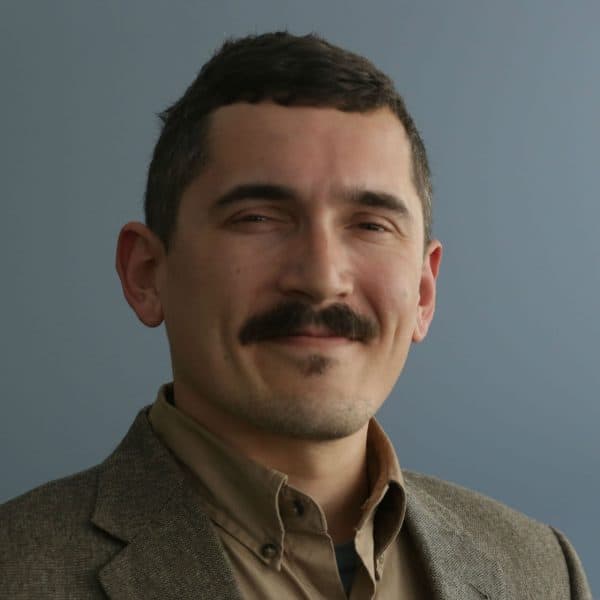Advertisement
Afghanistan War Vets Speak Out On U.S. Withdrawal
Resume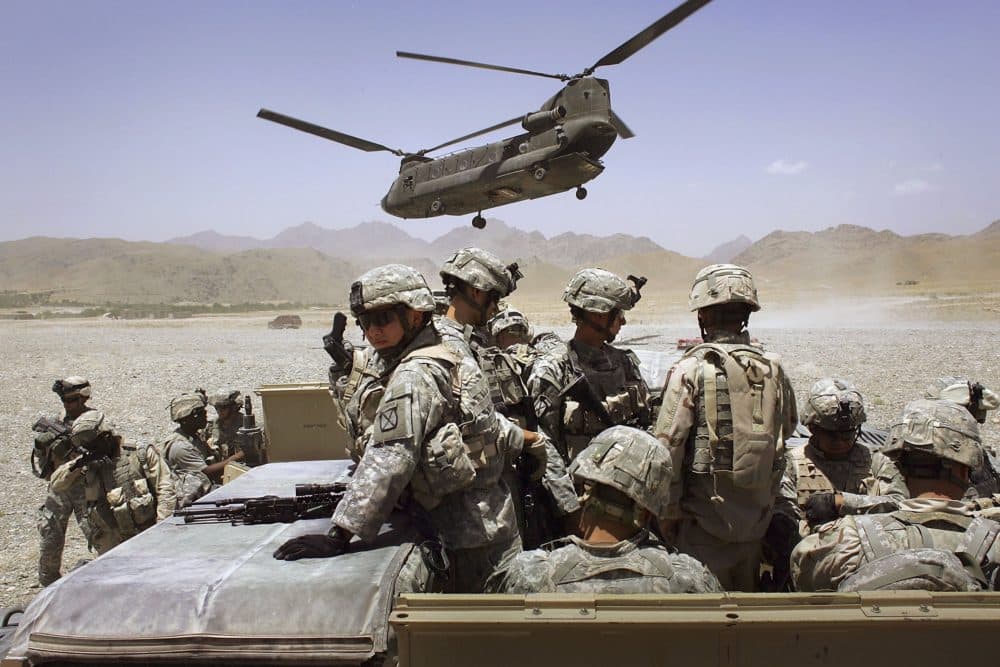
When Kim Enderle heard the news that the Taliban seized the Afghan capital on Sunday, the Army veteran started to grieve.
"I'm sad for the people who lost their lives," said Enderle, who served in the military for 25 years before going to Afghanistan as a contractor. "I'm sad for the people that continue to live there, that had had a taste for 20 years what a difference they could experience, perhaps under a democracy similar to ours."
"Especially the women."
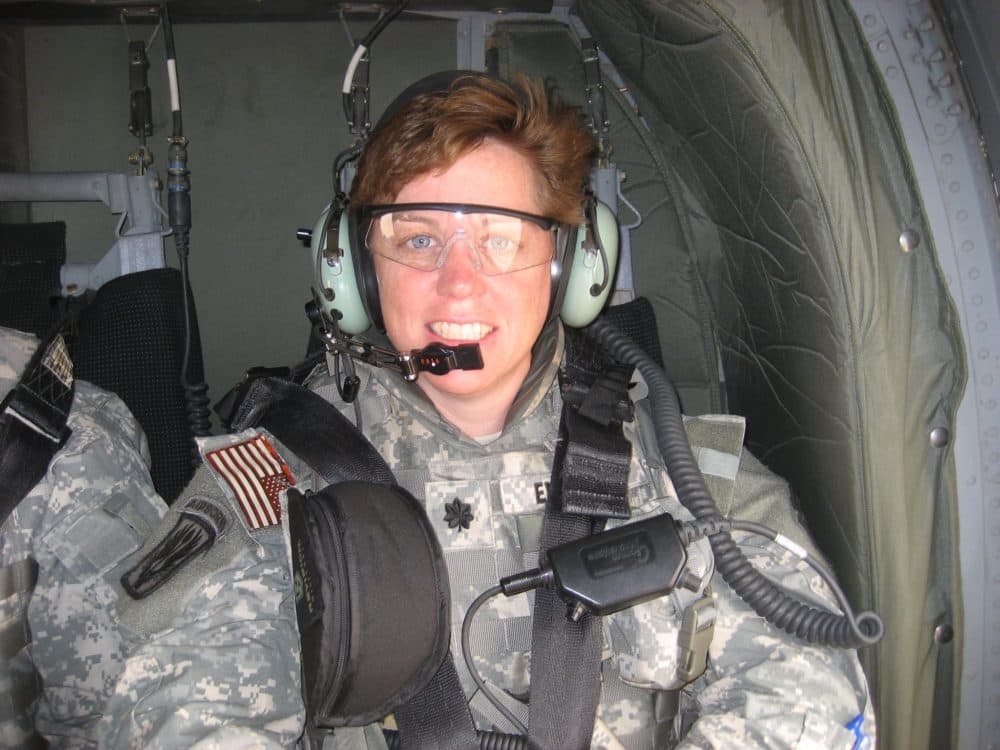
Enderle is one of a number of local veterans who served in Afghanistan speaking publicly about the end of the war.
Some veterans say the return of the Taliban was inevitable, but they are also disappointed the government collapsed — with little to no resistance — and that the U.S. didn’t do more to help Afghans evacuate.
Enderle is now pursuing a doctorate in history at the University of Massachusetts, Amherst. But she was in the Pentagon when the planes hit on September 11 — and she played a role in developing the plan to respond by invading Afghanistan in 2001.
She returned as a contractor in 2012, helping to draw up withdrawal plans that were later abandoned.
And this year, when the Biden administration announced it was pulling out, she told her uncle — a Vietnam vet— the end in Afghanistan might echo the end in Vietnam. She was referencing the chaotic U.S. evacuation in Saigon.
"And I said, 'The problem is the embassy in Kabul doesn't have a helipad on the roof,'" Enderle recalled. "And I'm a retired helicopter pilot and I just, sadly, I could see this coming.”
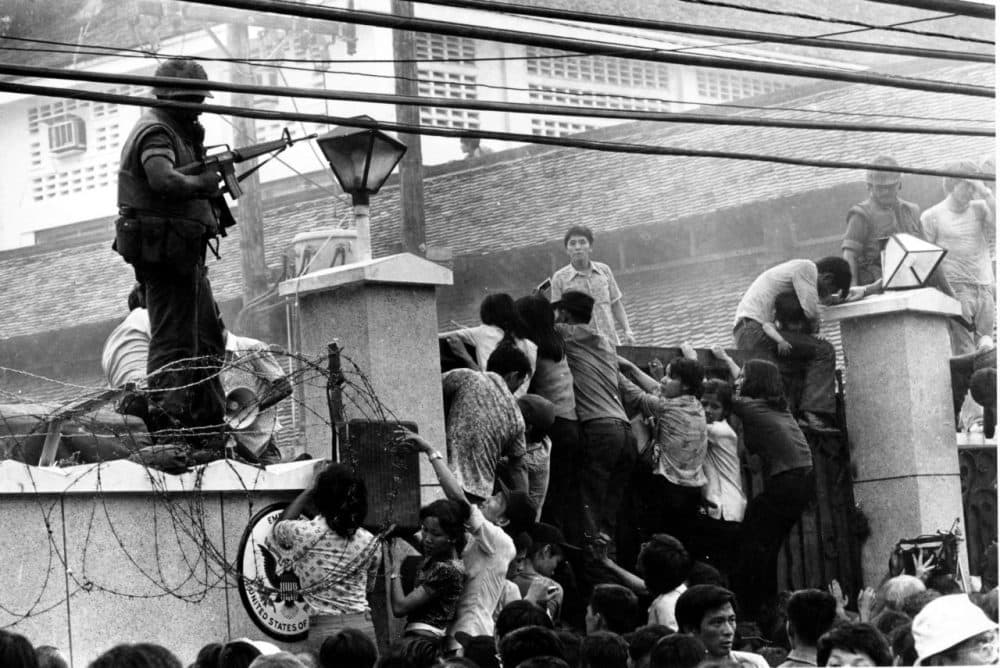
More than 700,000 American troops served in Afghanistan from 2001. And many are crestfallen seeing the images coming from Kabul: the Taliban taking power, and Afghan residents dying to flee the country.
Andrew Carleen of Quincy says the weakness of the Afghan government was evident when he served as a Naval officer there in 2012.
He recalls a meeting in which a junior Afghan officer asked his seniors why they weren’t doing more to help the families of dead soldiers: "We were lucky to be sitting next to a translator — he turned to me and he said, ‘You know who does take care of their fallen? The Taliban?'"
Carleen says he is glad the Biden administration is finally ending the longest war in U.S. history. But the chaos in Kabul is dredging up old memories of his time in the country.
"The biggest thing for me is just thinking about my Afghan colleagues there, and then all the folks that are going to get left behind," he said. "I think there was a real lack of urgency in getting those people out."
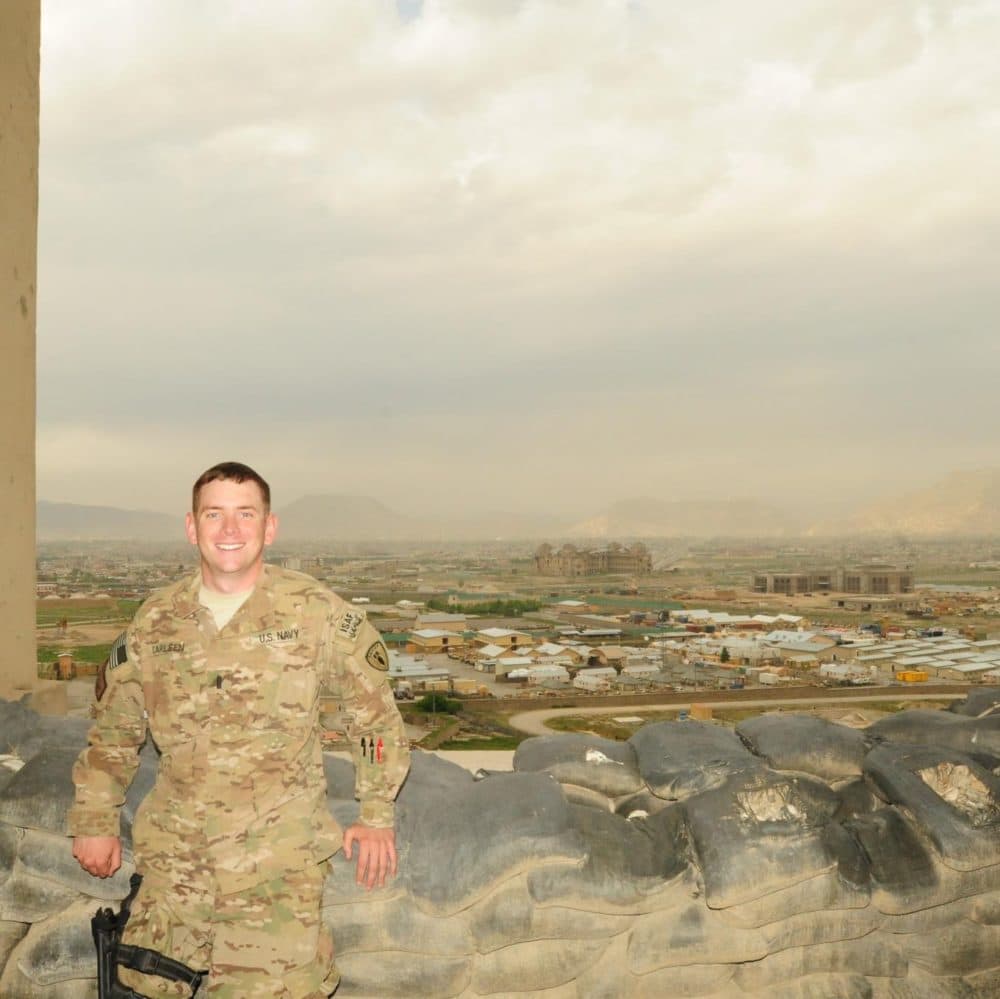
Carleen also worries he may have inadvertently put people in danger. He took pictures of many Afghans as a public affairs officer. Now he fears the Taliban could use his photos to identify American collaborators.
And he wonders what will happen to them next.
Correction: A previous version of this story incorrectly stated the years Kimberly Enderle served in Afghanistan. Enderle was in the country in 2012 and 2013.
This segment aired on August 18, 2021.
